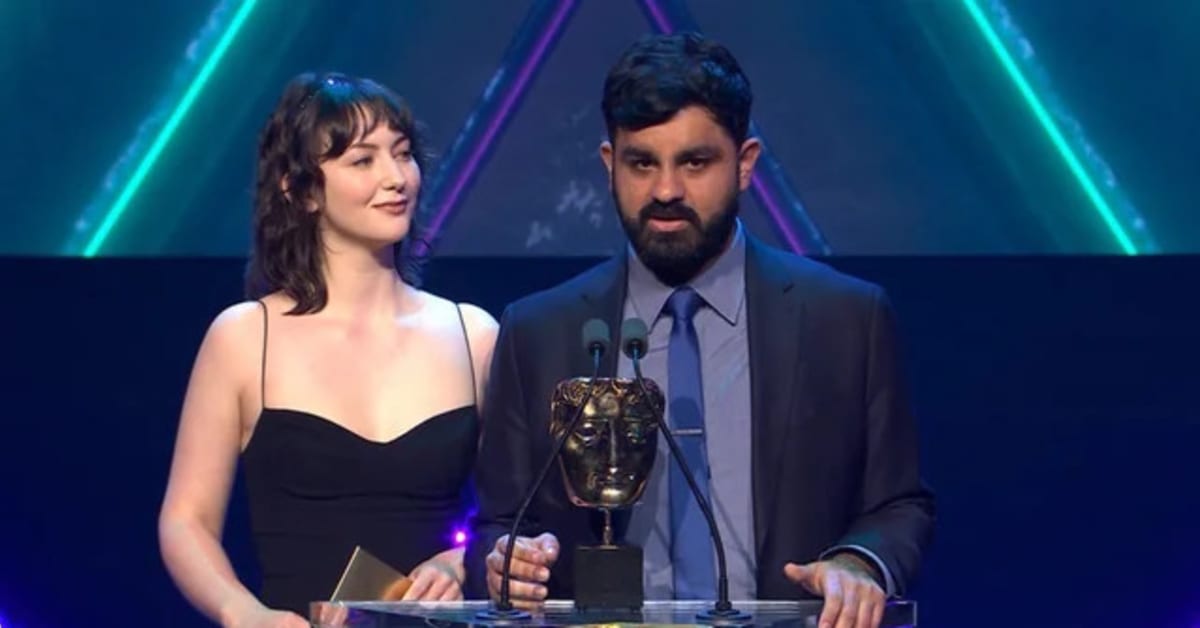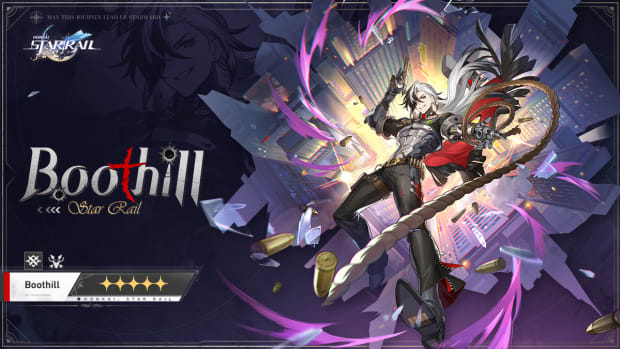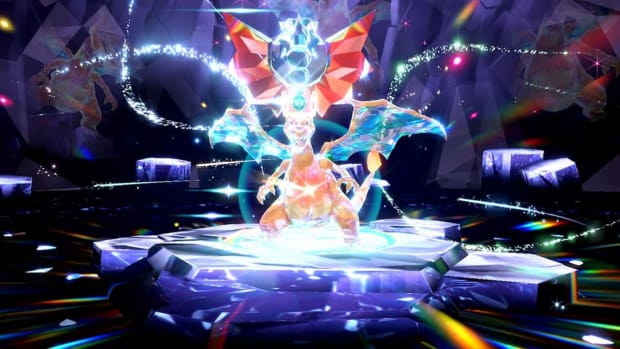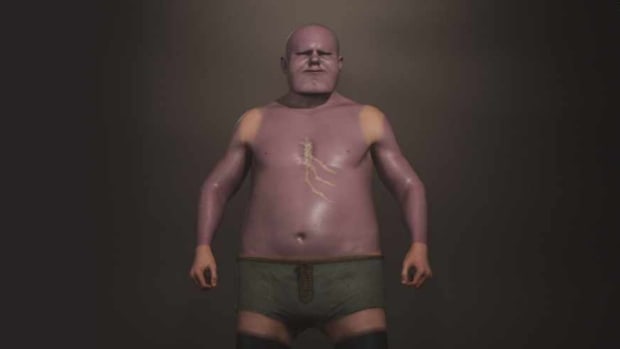
How video games helped Tamoor Hussain beat depression and escape poverty
Tamoor Hussain grew up in a one-bedroom apartment in East London, alongside his parents, sister, two brothers, grandparents, and uncles. After arriving from Pakistan, they were all stuffed into a small building inside a complex by the UK government’s housing association. At night, the family would share two beds between them – pushed together, allowing nine family members to sleep horizontally while his little brother slept in the cot.
Hussain is best known today as the managing editor of GameSpot, one of the largest video game websites in the world. He’s also the creative director of GiantBomb and a fully-fledged BAFTA member. Not bad for a kid from the UK’s council estates.
“It was a weird upbringing,” Hussain says. “It was a rough council estate. Whenever you went outside, there was a 90% chance that some lads would beat the s**t out of you for no reason. I was scared most of the time. That's where my love of video games came from – it was escapism. As a kid without the agency to walk around alone, I’d immerse myself in games.”
Of course, Hussain didn’t have access to a games console or PC. It’s hard to justify spending money on expensive technology when you have to top up your electricity meter £1 at a time so the power doesn’t cut. He had to settle for watching his cousins whenever he visited.
“I remember thinking, ‘This is unbelievable. I cannot believe what I'm seeing,’” he says. “I couldn't understand it. It was like so weird. I was like, ‘You're controlling what's going on on the TV. That's insane to me.’ I desperately wanted to play it, but my cousins were like, ‘I get to play for two hours a day – you must be mad if you think we’ll let you play for us.’”
That changed with the advent of fighting games. Suddenly, Hussain’s cousins needed victims, and he finally got to feel what it’s like to throw virtual punches and kicks (mostly take, but occasionally throw) with the press of a button. He’d get completely sandbagged for hours and love every minute of it.
“It became a thing that I needed desperately,” Hussain explains. “It became everything in my life. It was like food to me. Every second I wasn't playing video games, I was forced to live in the world around me.”
Eventually, his father managed to buy him a second-hand Sega Genesis, and he also happened to be friends with someone who owned an independent used games store. He lived and breathed Street Fighter 2 while dabbling in the occasional curio the shop would sell him with a heavy discount, such as a side-scrolling Jurassic Park game where you could play as a human or a dinosaur, Gunstar Heroes, and a game I was sure he made up until I Googled it, Atomic Runner Chelnov. It’s like a cheese dream, honestly. Some real Berenstain Bears stuff.

Frowned upon in society, Tamoor spent a lot of time punching people in the face on his Sega Genesis.
Sega
“Streets of Rage was a massive one for me,” Hussain explains. “And then Columns. So much Columns. People talk about having the Tetris bleeding effect, where when they close their eyes, they can still see [the blocks]. For me that happened with Columns. I think that's where a lot of my broad love of video games came from because I just had to play whatever I got.”
He didn’t have a garden to play in and kids his age weren’t hanging out on London’s streets, so the Genesis became his companion – in fact, he looked after it so well that it’s still with his family. But growing up in that hostile environment, where neighbors were suspicious of each other and kept to themselves, had a knock-on effect on Hussain’s confidence. To meet him now, you wouldn’t know it because he masks it so well, but he’s an introvert in nature. Working in games media has helped in that sense, but he still finds being around lots of people mentally draining – particularly when there’s alcohol involved, or non-halal food at events.
“Even as a kid, my teachers would constantly tell my parents, ‘He doesn't talk to anyone’,” Hussain says. “I was getting in trouble for doing it. So I learned and forced myself to do it here and there. When I got to my teenage years, it was essential if you don’t want to become a pariah. The early years helped me develop that ambidextrous approach to being an introvert-extrovert, but even today, I just got back from Dice, and it was hell on Earth. People everywhere, drinking and smoking, I'm not that kind of person. I just want to be home.”
Through these years of navigating through social anxiety as a Muslim, Hussain realized that video games were a perfect icebreaker. Whenever he found someone who shared his interest, conversations would flow. He realized he loved talking about them, and when he left home and got access to the internet, that became writing about them as he shared his thoughts on website forums. It became a form of therapy, allowing him to expel some of the noise clattering around his brain while he worked his way through college, aiming for a law degree (which he eventually got, despite battling with number blindness, or dyscalculia, alongside depression).
“I was severely depressed,” Hussain says. “Depression in the South Asian community is extremely taboo. South Asians have a very, very bad relationship with mental health. I think back on people that I knew when I was younger – adults in our community – and with hindsight, I can tell, like, that person was depressed. We just didn't talk about it.
“It manifested in so many different ways. I was massively overweight and slept all day. It was the typical depressive spiral but it was just treated as me being an unruly teenager. I was just in my own space and quite removed from the world. It was seen as laziness. It was seen as me sabotaging my own life. Somehow I got A-levels in Psychology, Law, and English Language. It was such a struggle. I remember that whole period, there were times where I was like, ‘I just don't want to exist – if this is how the rest of my life is gonna be, I don't want this.”

You can't tell looking at it now, but Metal Gear Solid was so far ahead of its time it's ridiculous.
Konami
He studied Law because he thought that was his path. Predetermined. Become the breadwinner, earn lots of money, passion comes second, help your family. But games always pulled him in.
Metal Gear Solid’s launch changed the trajectory of Hussain’s life, acting as the perfect muse for his blog posts. It had a layered story and interesting mechanics that did things no other game was doing. It opened his eyes to what games could be and pushed him toward writing more about these experiences in the spare time he found while his university friends were out drinking. Eventually, this passion landed him an unpaid internship with GameSpot, the site he now manages, which helped to get him the experience needed to land a job at the now-defunct CVG. After Future Publishing closed that site, he worked on the UK trains for a while, where he was spit at, assaulted, and more. But the pay was good.
“I remember walking around to every person I worked with at the London Underground and asking them the same question: how much of a pay cut would you take if it meant that every day you woke up and you looked forward to work? Some people were like, ‘20 grand, 10 grand,’ and that is when I realized there's no future in this for me.”
That’s because his future is right here. The industry is lucky to have Tamoor Hussain. Not just for his writing, but because he supports new talent, pushes for positive change, and uses his platform to improve the world, from charity streams to raising awareness about global injustice. He might have grown up in a UK council estate, but he’s right where he’s supposed to be in GameSpot’s San Francisco office.





